In today’s digital world, where e-commerce and online transactions are rapidly growing, businesses require secure, efficient, and reliable payment gateways to facilitate seamless payments. Top Payment Gateway Companies in Europe act as the bridge between merchants and customers, ensuring the secure transmission of sensitive payment information. In Europe, where online transactions continue to expand, choosing the right payment gateway is critical to ensuring business success. Here is a guide to some of the best payment gateway companies in Europe, based on their popularity, reliability, security, and ease of integration.
What Are Payment Gateways?
Payment gateways are essential software systems that authorize and process payments between buyers and sellers. Acting as virtual terminals, these systems ensure the secure transfer of sensitive payment data from the customer to the merchant’s bank account, guaranteeing smooth and successful transactions. In an online business setting, payment gateways encrypt customer data, send it to financial institutions for verification, and finalize the payment by transferring funds from the customer to the merchant. To stay competitive, businesses often explore the services of Top Payment Gateway Companies in Europe, known for their advanced security features and seamless integration with various financial institutions.
Nominate Your Company for the Cosmopolitan The Daily Business Awards!
Does your business deserve global recognition? Nominate now for the Cosmopolitan The Daily Business Awards and celebrate your achievements in innovation, creativity, and impact. This award is open to companies of all sizes and regions, from local innovators to global leaders. Stand out in your industry and showcase your success.
Top 10 Payment Gateway Companies in Europe
1. PayPal

One of the most well-known payment gateways globally, PayPal provides a user-friendly platform with extensive international capabilities. Supporting over 200 countries and multiple currencies, PayPal is a great choice for businesses with a global clientele. Its robust security measures and ease of integration with e-commerce platforms make it highly reliable.
- Pros: Global reach, secure transactions, user-friendly interface.
- Cons: International transfers involve fees, and fund transfers can take up to 2-3 days.
Official Website: PayPal
2. Stripe

Known for its developer-friendly API and ease of customization, Stripe is a top choice for European businesses. Supporting over 135 currencies, Stripe also offers a range of payment methods including digital wallets, credit cards, and bank transfers. Stripe’s advanced fraud prevention tools make it ideal for mitigating risks.
- Pros: Flexible API, wide currency support, instant withdrawal.
- Cons: Not available in some Central and Eastern European countries, complex interface for beginners.
Official Website: Stripe
3. Adyen
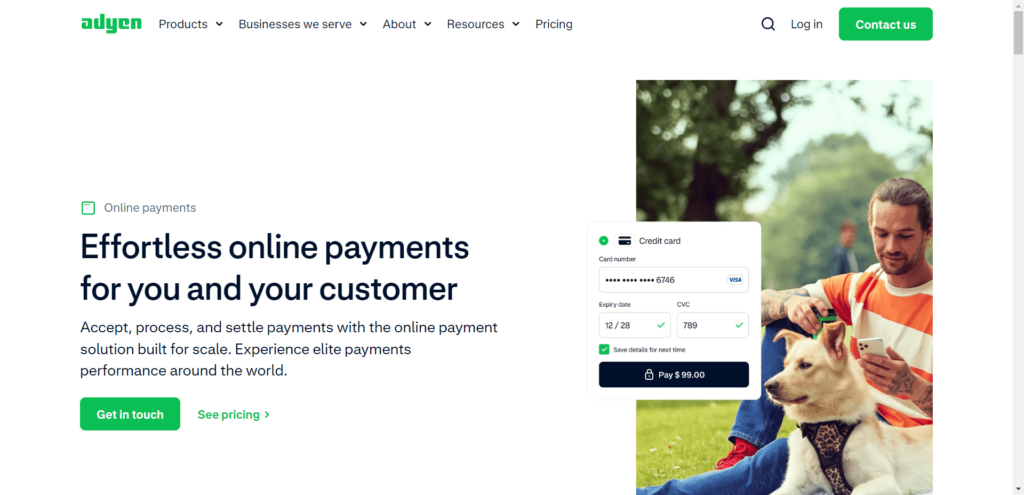
Adyen has a strong presence across Europe and is known for its powerful global payment processing capabilities. It provides businesses with a unified platform that enables seamless transactions across various regions. Adyen offers advanced analytics, helping merchants optimize payment strategies and enhance user experience.
- Pros: Global reach, seamless cross-border payments, data analytics.
- Cons: Complex pricing structure.
Official Website: Adyen
4. Worldpay
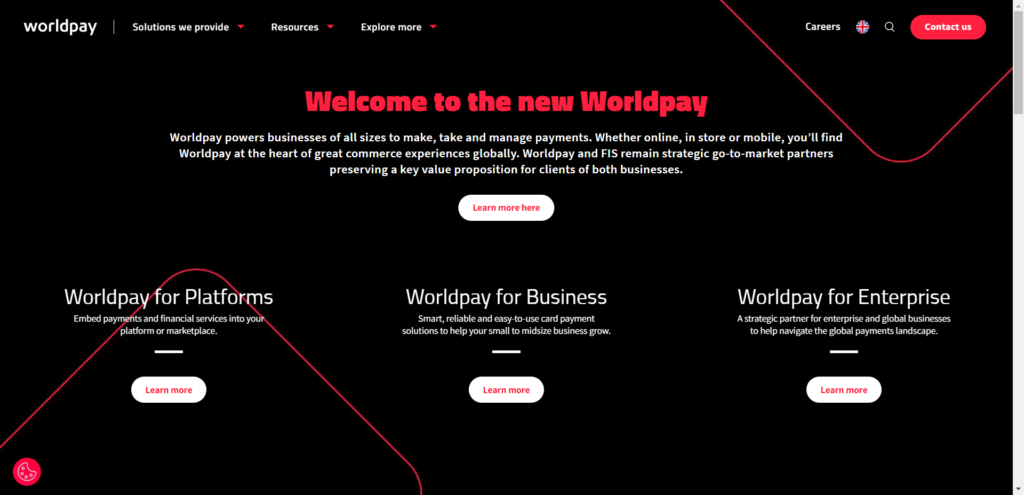
Worldpay, a trusted name in payment processing, offers tailored solutions for businesses of all sizes. Supporting a wide range of payment methods like credit cards, e-wallets, and mobile payments, Worldpay ensures secure transactions and helps businesses navigate the complex regulatory landscape of payments.
- Pros: Secure platform, global acceptance, various payment methods.
- Cons: High transaction fees, complex customer support.
Official Website: Worldpay
5. Skrill
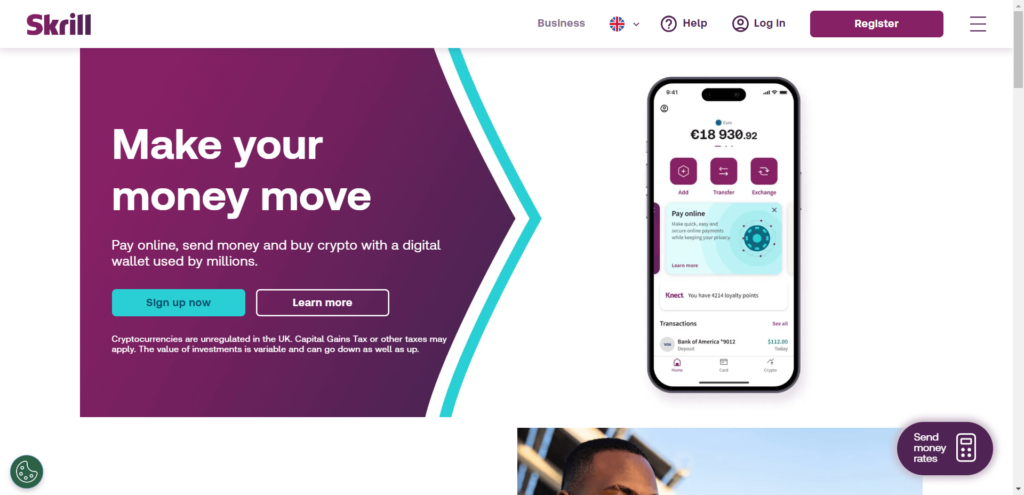
Skrill, formerly known as Moneybookers, is a popular digital wallet platform that allows businesses and consumers to transfer funds securely. It supports multiple currencies and offers a prepaid Mastercard, making it convenient for users to access their funds.
- Pros: Wide acceptance, competitive fees, simple interface.
- Cons: Fees can add up for frequent transfers.
Official Website: Skrill
6. Authorize.Net
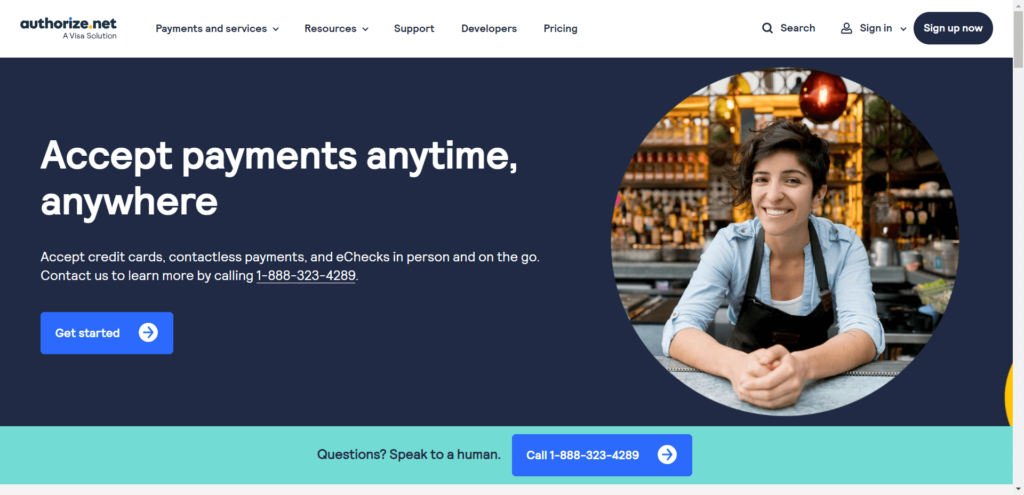
Authorize.Net is a go-to gateway for small and medium-sized businesses in Europe. It offers features such as recurring billing, fraud detection, and customer management, making it a robust and scalable solution for businesses looking to grow their online operations.
- Pros: Recurring payments, fraud prevention, simple integration.
- Cons: Limited currency support compared to others on this list.
Official Website: Authorize.Net
7. 2Checkout (now Verifone)

2Checkout, now rebranded as Verifone, is a top player among Top Payment Gateway Companies in Europe. Known for its robust global payment processing capabilities, Verifone offers merchants a broad selection of payment methods and currencies, making it ideal for cross-border transactions. With a strong focus on security and compliance, Verifone is an excellent choice for businesses seeking secure and efficient international payment solutions.
- Pros: Strong security measures, multi-currency support, compliance-focused.
- Cons: Transaction fees can be high for smaller businesses.
Official Website: 2Checkout (now Verifone)
8. PayU

PayU is a leading European payment service provider offering seamless checkout experiences for businesses. Its extensive network of banking partners and payment methods ensures that businesses can easily accept payments and expand their reach across various regions.
- Pros: Strong banking network, flexible payment solutions, focus on innovation.
- Cons: Limited in smaller European countries.
Official Website: PayU
9. Braintree
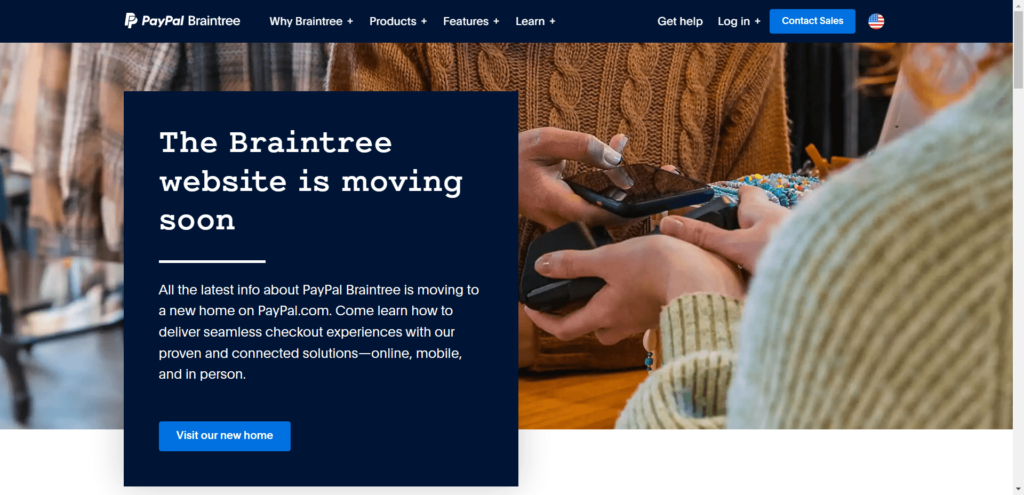
A subsidiary of PayPal, Braintree is widely regarded as one of the Top Payment Gateway Companies in Europe due to its developer-friendly platform and advanced security features. Supporting a diverse range of payment methods—including cards, digital wallets, and bank transfers—Braintree empowers businesses to enhance their online presence and seamlessly expand across the European market.
- Pros: Flexible API, robust security features, global reach.
- Cons: Complex fraud management process.
Official Website: Braintree
10. Square
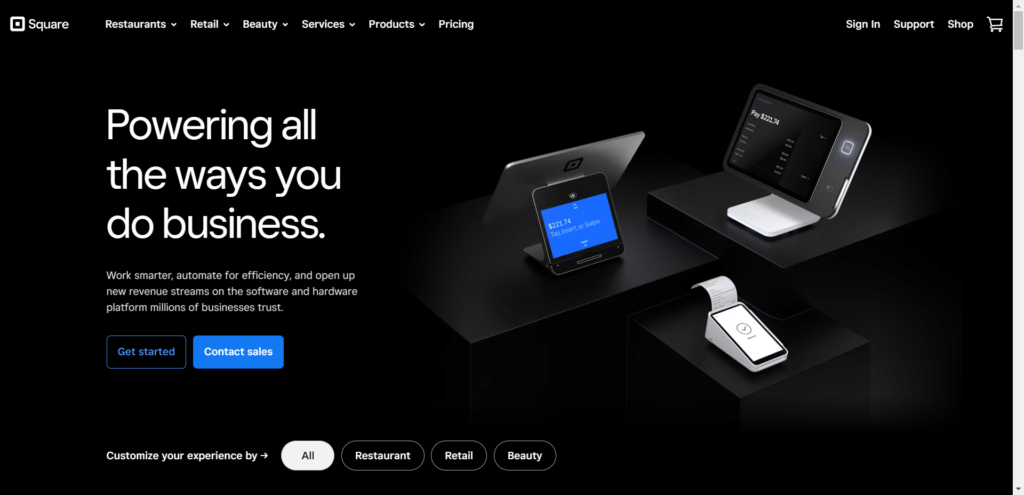
Square is emerging as a leader among Top Payment Gateway Companies in Europe, transforming the payment processing space with an intuitive platform that combines both point-of-sale tools and online payment solutions. Its transparent pricing model and straightforward user interface make Square a preferred choice for small to medium-sized businesses looking for reliable and user-friendly payment options.
- Pros: All-in-one platform, transparent pricing, ease of use.
- Cons: Limited availability outside of larger European countries.
Official Website: Square
Key Considerations When Choosing a Payment Gateway
When selecting a payment gateway for your business in Europe, consider features offered by top payment gateway companies in Europe to ensure optimal performance:
- Support for Local Payment Methods: Each European country has its own payment preferences. Choose a gateway that accommodates both local and cross-border transactions, covering diverse customer needs across Europe.
- Integration with Merchant Systems: Seamless integration with your existing e-commerce platform or merchant system is essential for operational efficiency.
- API and Plugin Support: Opt for a gateway with developer-friendly APIs and plugins to simplify payment integration and maintain future flexibility.
- Fraud Prevention: Robust fraud management tools are crucial for preventing unauthorized transactions and securing international payments.
- Compliance: Ensure your payment gateway complies with European financial regulations and standards, such as PCI-DSS, to meet compliance requirements across the continent.
Conclusion
Selecting the right payment gateway is vital for the success of any business operating in Europe. Each gateway has its strengths and weaknesses, so it’s essential to assess your business needs, transaction volume, and target market to choose one that aligns best with your goals. When exploring options among the Top Payment Gateway Companies in Europe, consider whether PayPal’s ease of use, Stripe’s flexibility, or Adyen’s global reach best suits your needs. A reliable payment gateway will streamline your transactions and support your business growth.
Disclaimer:
The list of entities provided here is intended for informational purposes only and does not constitute a recommendation, endorsement, or advice. We make no representations or warranties regarding the accuracy, reliability, or completeness of the information. Readers are strongly encouraged to perform their own research and due diligence before making any decisions related to these organizations. This list is a generic compilation and is not associated with Cosmopolitan The Daily Business Awards or its award winners. We assume no responsibility or liability for any outcomes resulting from actions taken based on this information, including, but not limited to, financial or contractual commitments.